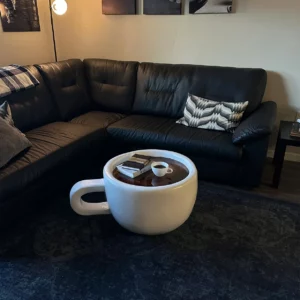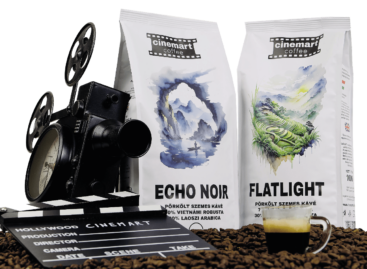Coffee that connects: trends and challenges in the coffee market
Coffee is now part of our everyday lives, and although it may become a luxury item in some ways due to rising prices, it is still one of the last things we would give up. Coffee consumption is growing globally, but world market prices are constantly responding to economic, social and environmental processes. According to Péter Takács, Managing Director of Julius Meinl Hungary, the current situation and future of the coffee market hold many challenges and exciting trends – we can read in the Index article.
 The prices of arabica and robusta coffees show a significant difference, but recently certain robusta coffees have become more expensive than arabica. This is partly a consequence of growing conditions and the warming of the atmosphere, as the growing areas are becoming higher above sea level, which increases the costs of production. At the same time, coffee is no longer just a simple agricultural product, but also a strategic commodity, the price of which is also influenced by global demand, inflation and transport costs.
The prices of arabica and robusta coffees show a significant difference, but recently certain robusta coffees have become more expensive than arabica. This is partly a consequence of growing conditions and the warming of the atmosphere, as the growing areas are becoming higher above sea level, which increases the costs of production. At the same time, coffee is no longer just a simple agricultural product, but also a strategic commodity, the price of which is also influenced by global demand, inflation and transport costs.
Julius Meinl places great importance on ensuring that its coffee reaches its consumers with the smallest possible ecological footprint. According to Péter Takács, the company works with zero-emission transport companies, has introduced compostable capsules and packaging, and actively supports producers, especially in Colombia. Sustainability is key, as failure to take care of the growing areas and production processes can compromise the quality and availability of coffee in the long term.
Coffee has always been an integral part of social life, especially in Hungary, where the Viennese and Parisian coffeehouse culture left a strong mark. Although the 20th century and the COVID pandemic damaged this tradition, it seems to have revived in recent years. Hungarian consumers are increasingly open to new coffee varieties and styles, while quality coffee shops have once again become popular places for social interaction.
Julius Meinl currently has no plans to open its own coffee shop in Hungary, but its premium coffees are available in many places through its partners. The company aims to promote the experience of drinking quality coffee and encourages coffee to be an experience rather than just a routine. As Péter Takács put it: “At Julius Meinl, we want to bring back the experience when coffee brings people together to talk and listen to each other.”
The future of the coffee market is exciting, but sustainability, quality and social responsibility are key to ensuring that this unique drink maintains its place in our everyday lives in the long term.
Related news
Experience instead of routine
🎧 Hallgasd a cikket: Lejátszás Szünet Folytatás Leállítás Nyelv: Auto…
Read more >A cup of creativity…
🎧 Hallgasd a cikket: Lejátszás Szünet Folytatás Leállítás Nyelv: Auto…
Read more >Related news
Hétéves növekedési stratégiát jelentett be az Auchan
🎧 Hallgasd a cikket: Lejátszás Szünet Folytatás Leállítás Nyelv: Auto…
Read more >









